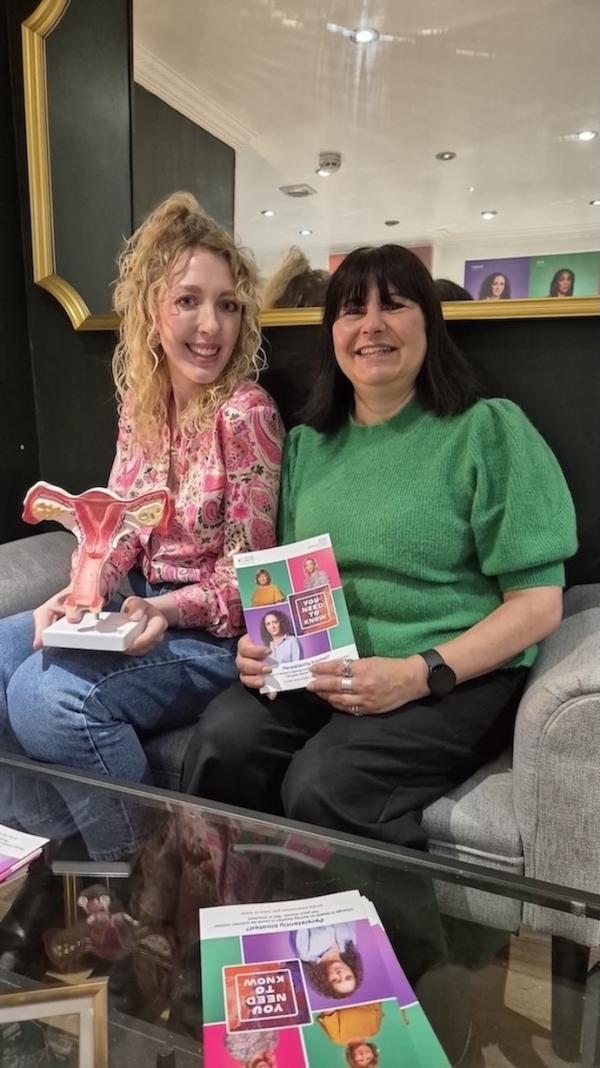You Need To Know
You Need to Know
If you experience uncomfortable fullness or swelling in the abdomen that doesn’t come and go, you must get it checked by a doctor. This could be a sign of ovarian cancer. It’s probably nothing serious, but if it is cancer, finding it early can make it easier to treat.
Download our leaflet for more information.
Watch our short video about ovarian cancer.
You can also watch it in Lithuanian or Turkish.
What is ovarian cancer?
Ovarian cancer happens when abnormal cells grow and divide uncontrollably in the ovary or fallopian tubes. It is the sixth most common cancer in women, and there are approximately 7,500 new cases every year in the UK, according to leading charity, The Eve Appeal.
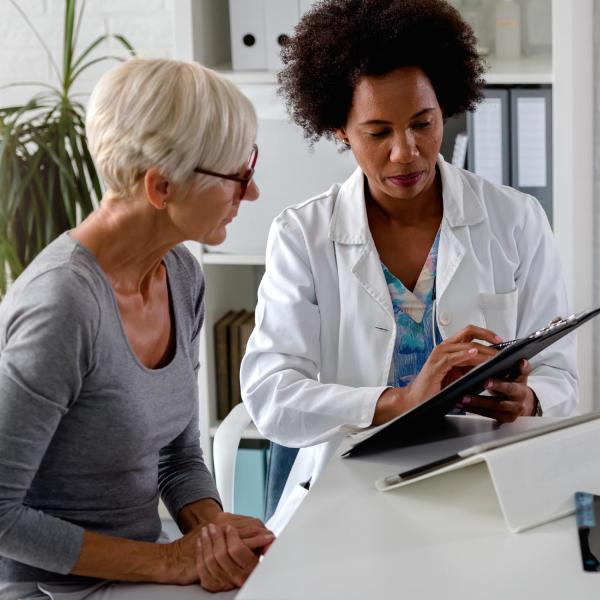
What are ovaries?
The ovaries are small, oval-shaped organs located on either side of your uterus (womb). They produce and store your eggs (also called ova), which are released as part of a woman’s menstrual cycle. They also make hormones called oestrogen and progesterone.
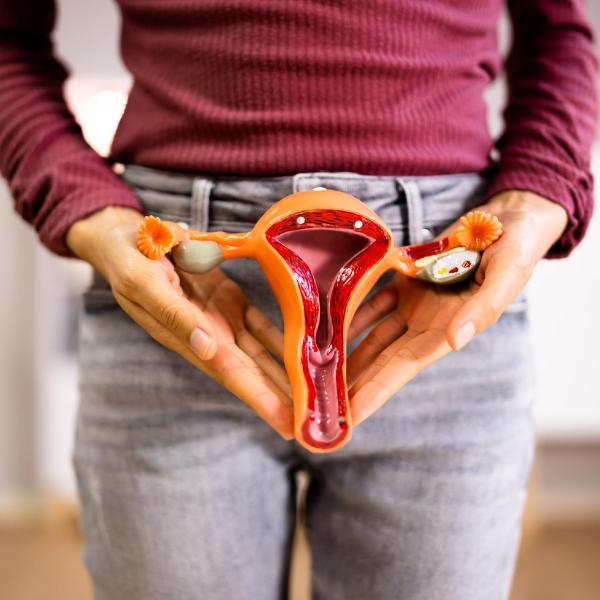
Who can be impacted by ovarian cancer?
Ovarian cancer can affect anyone at any age, but the risk increases as you get older. In the UK, more than half of cases occur in women aged 65 and over.
In North East London, ovarian cancer diagnoses increased by 20% between 2018 and 2022. Approximately 44% of those diagnosed between 2018 and 2020 were between the ages of 25 and 54 and over half of ovarian cancer diagnoses are made at a late stage of the disease (Stage 3 or 4).
Ovarian cancer is more treatable if it's diagnosed early. This is why the ‘You Need to Know’ campaign is raising awareness about the symptoms of ovarian cancer, so you can recognise them early and get checked right away.
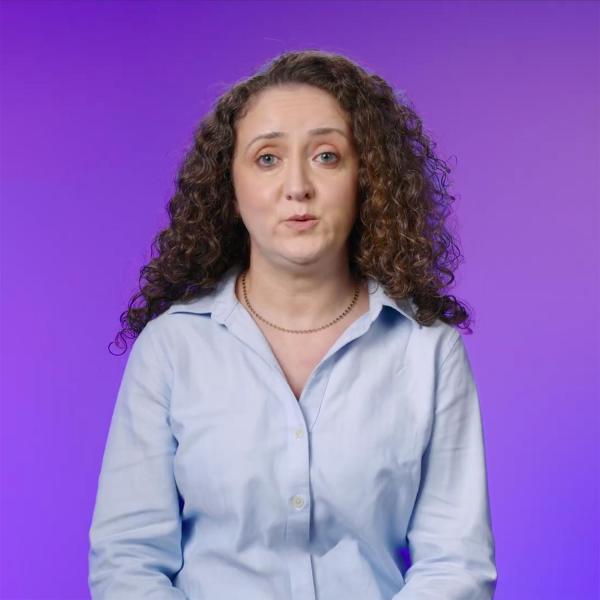
What are the symptoms of ovarian cancer?
One of the main symptoms of ovarian cancer is persistent bloating causing the abdomen to look and feel bigger. The main symptoms of ovarian cancer are:
What happens if you have any of these symptoms?
The symptoms can vary from person to person and experiencing them does not mean it is ovarian cancer.
Some of the symptoms of ovarian cancer are often the same as for other conditions, such as irritable bowel syndrome (IBS) or pre-menstrual syndrome (PMS), so it can be difficult to recognise the symptoms in the early stages. Please note If you are over the age of 50 and have never had IBS before, it is very unlikely to be the cause of your symptoms. Be sure to speak to your GP.
However, if you have one or more of the symptoms above, you should get it checked. It is always important to speak to your doctor if you are experiencing any new or unexplained symptoms.
What are the risk factors for ovarian cancer?
Age - while ovarian cancer can happen to anyone with ovaries at any age, the risk of having ovarian cancer increases with age. More than half of all cases in the UK are in women aged 65 and over.
Ethnicity - Ovarian cancer can affect anyone, no matter their ethnicity. The number of women affected is generally lower in the Asian and Black ethnic groups, and in people of mixed or multiple ethnicities, compared with the White ethnic group.
Family history and inherited gene alterations – having a family history of ovarian or breast cancer can increase the risk. This can be the result of changes to certain genes, known as gene alterations or mutations. The most common gene alterations are on the BRCA1 and BRCA2 genes. It is estimated that about 2 in 10 ovarian cancers may be caused by a gene alteration.
There are a few other risk factors which may increase your chance of developing ovarian cancer. These include being overweight, smoking, exposure to asbestos, radiation exposure, endometriosis, being diabetic and use of hormone replacement therapy (HRT).
It is still possible to get ovarian cancer even if you’ve had your ovaries removed as it can develop in the fallopian tubes.
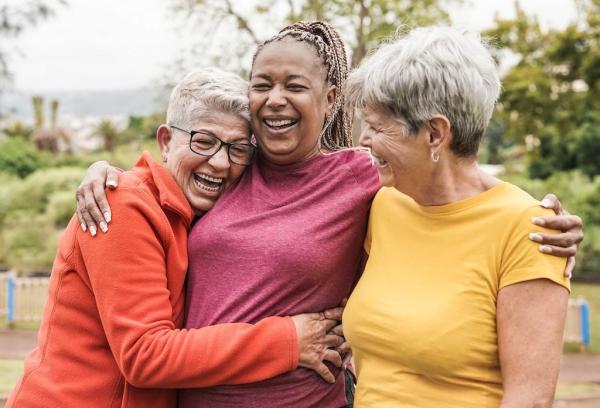
What should I do if I am worried that I may have ovarian cancer?
Don’t delay – contact your GP as soon as you notice any symptoms that are new or different for you.
Going to your GP for private health concerns may feel uncomfortable, but there are things you can do to help make the experience easier. While these options may not always be possible, please remember that you can ask for:
A female GP
A GP that specialises in women’s health
Someone who can speak your language
An interpreter
Attend your appointment with a friend, family member or carer
Maximise your GP appointment by preparing in advance. Note your symptoms, how long have you been experiencing them, and why they concern you. Don’t be afraid to specifically mention if you think your symptoms could be ovarian cancer.
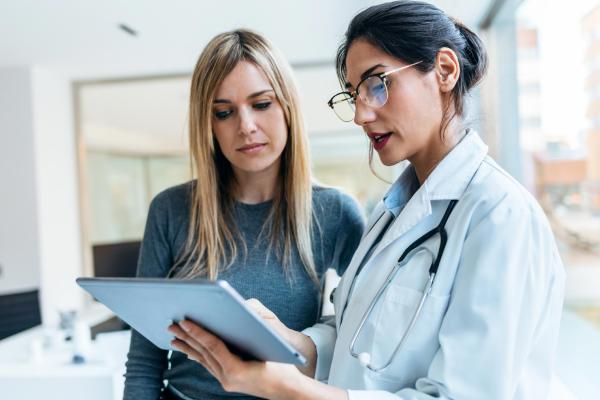
What happens at your appointment?
Many GP appointments are done over the phone or online. However, if you prefer, you can request a face-to-face appointment. Additionally, your GP might ask you to visit in person after your initial phone consultation.
During the appointment, your GP will ask you some questions about your symptoms and they may want to examine you (feel your tummy). After your examination, your GP will talk to you about what happens next. This could be some blood tests, an ultrasound scan of your tummy and/or a referral to the hospital to see a gynaecologist (a doctor specialising in the health of the female reproductive system). This is usually within 2 weeks if your GP thinks your symptoms could be caused by a cancer.
If you are referred to a gynaecologist, this will usually be in-person, at a clinic or hospital, with doctors who have more expert knowledge related to your symptoms. They may do further test to understand what is causing your symptoms and help decide if you need any treatment.
If you were advised by your GP to monitor your symptoms, make sure you return if they don’t improve or you notice new symptoms. This is important information for the GP to help them direct you to the right specialist.
Where can I find out more information?
Talk to your GP if you are experiencing any of the symptoms of ovarian cancer.
For more information about the ‘You Need to Know’ campaign, visit our campaign page.
For more information on ovarian cancer, visit The Eve Appeal: Ovarian cancer - The Eve Appeal
The Eve Appeal has a free and confidential service called Ask Eve, where you can speak to a gynae nurse about gynaecological cancers, their symptoms, and any worries you may have.
Ask Eve has an interpretation service available in over 250 languages.
Call The Eve Appeal on 0808 802 0019 or email nurse@eveappeal.org.uk
For information about womb cancer, visit: https://www.nelcanceralliance.nhs.uk/youneedtoknow
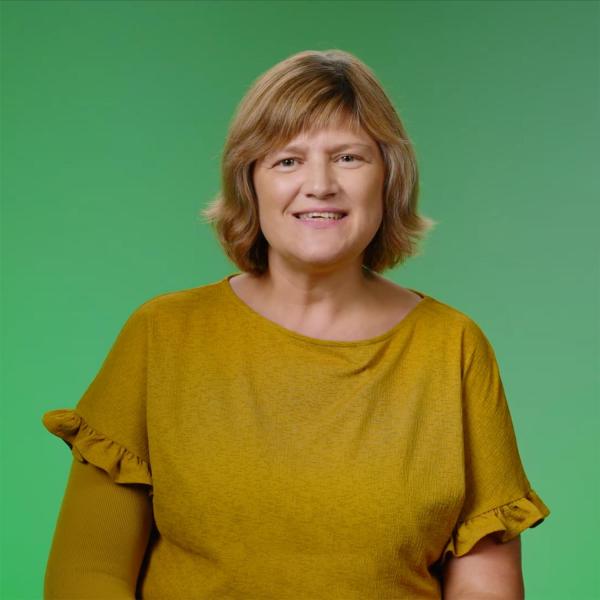
‘You Need to Know’ events
The Eve Appeal will host a series of educational events at community-based venues across north east London. These will provide valuable information on gynaecological health, including risk factors and symptoms of womb and ovarian cancer, as well as information on what to do if you notice any symptoms.
The Eve Appeal and North East London Cancer Alliance are also hosting awareness days at neighbourhood nail salons. These aim to educate and connect with local women, offering a free unique ‘You Need To Know’ manicure and providing the opportunity to ask questions about ovarian cancer.
Information on these events can be found on the social media channels of The Eve Appeal and North East London Cancer Alliance:
The Eve Appeal - Facebook, The Eve Appeal - Instagram and The Eve Appeal - X
NEL Cancer Alliance - Facebook, NEL Cancer Alliance - Instagram and NEL Cancer Alliance - X
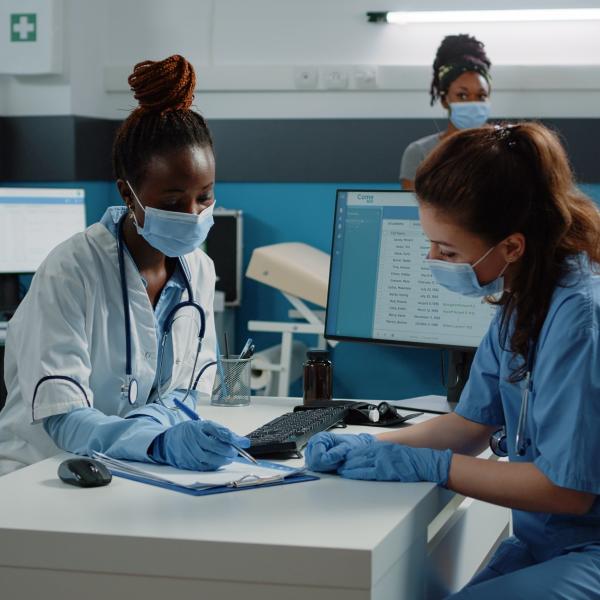
What do you think of the campaign?
We want to invite you to share your thoughts on the campaign so far, so we can keep making it better and reaching more people who need to know. Complete our short survey: https://forms.gle/E2yoHushdiL6Eri58
We are also looking for women who live in North East London to spread the word and do some community research for the ‘You Need to Know’ campaign. If you are interested in finding out more about this paid opportunity, please send an email titled ‘Community Research Opportunity’ to sabinad@shortwork.org.uk.
